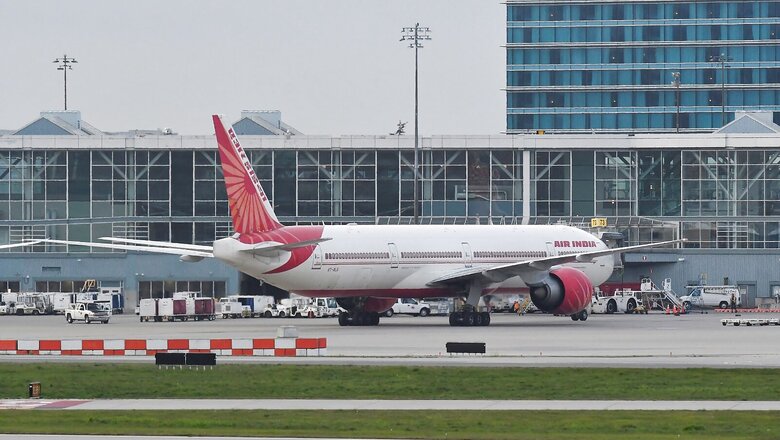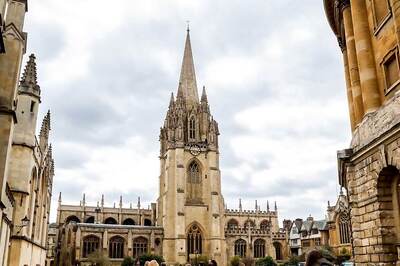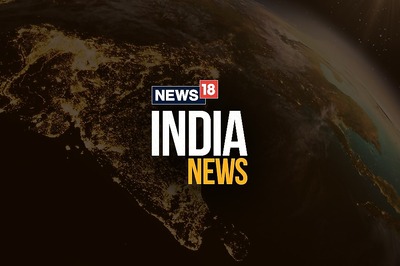
views
For the first time in two years, Indian travellers are free to make summer plans without having to account for Covid-related travel restrictions. And with international flights resuming their regular schedule, foreign destinations have topped wishlists.
According to Dutch online travel agency Booking.com’s Travel Predictions 2022, 65% of Indian travellers have indicated that they don’t care where they go on vacation as long as it’s the type of trip they desire. According to data from the company, Indian tourists are flocking to beach resorts and hill areas to escape the summer heat.
As per a survey conducted by ZestMoney, an EMI finance and buy-now-pay-later (BNPL) network, 70% of Indians want to travel during the summer, reflecting pent-up demand after two years of the pandemic.
As per a customer survey conducted to better understand the travel plans and vacation preferences of Indians, 60% of the respondents said they would travel domestically, while nearly 40% said they would travel internationally in the next three months now that pandemic restrictions have been lifted. Around 2,000 people from across India responded to the study, the majority of whom were millennials and Gen Z.
Air Travel
The rise in airfares, however, has dented vacation spirit to an extent, following a steep increase in the price of aviation turbine fuel (ATF) and an increase in user development fees (UDF) — a component of the airfare and aeronautical fees that airlines pay to airports.
Domestic air passenger traffic fell 4.58% from 2,317,915 in the week ending March 1 to 2,211,838 in the week ending April 7, indicating that high prices, among other factors, may have influenced demand, according to aviation analysis website NetworkThoughts.
However, domestic air passenger traffic is expected to be around 84 million in FY22, up about 59% from the previous year but down 40% from pre-Covid levels, according to a report released by rating agency Icra Ltd.
On the other hand, according to a report by rating agency Crisil Ltd, Indian airlines may post a record loss of more than Rs 20,000 crore in FY22, which is 44% higher than the loss reported the previous year. Domestic air traffic is expected to return to pre-pandemic levels by the fourth quarter of 2022-23.
But in May, it was reported that many airlines are charging domestic passengers a fee to check-in at airport counters, something that’s making travel enthusiasts dispirited.
After domestic flights resumed operations partially in May 2020, the government imposed certain conditions, such as requiring passengers to check-in online. Since then, many airlines have begun charging domestic passengers a fee to check-in at airport counters.
A passenger recently complained on Twitter about airlines charging a fee for check-in, comparing it to a restaurant charging a customer extra for serving meals on a plate. Another user tagged Union Aviation Minister Jyotiraditya Scindia, calling the practice “ridiculous”.
To that tweet, the minister responded by saying, “Agreed, will examine this asap.”
Given that the cess is a commercial choice made by struggling Indian airlines, it remains to be seen how the government will persuade them to reconsider, especially at a time when airline operating costs are at an all-time high due to record-high rates for aviation turbine fuel (ATF) and a record-low rupee.
The high base price of ATF combined with even higher VAT and excise tax rates has made jet fuel for domestic flights in India among the costliest in the world. Delhi and Maharashtra, that have India’s largest aviation hubs, are yet to reduce VAT on ATF. The Centre has also refused to lower excise on jet fuel, despite airlines’ demands.
Domestic fare bands, which are determined by the aviation ministry and apply to tickets sold for flights departing within 15 days of purchasing, have not been updated upwards in many months, despite the continuous rise in jet fuel prices.
News18.com spoke to the president of the Travel Agents Association of India (TAAI), Jyoti Mayal. Explaining about the air travel business during summer holidays, she said, “Air travel is expected to reach new heights this summer. As we all know that it has already reached pre-Covid levels and now we are positive that it will soon cross that number as well.”
“There are multiple reasons for it. For instance, MICE. Various businesses saw a major slump in their customers and, therefore, in order to recuperate from the turmoil, we are expecting many big trade shows, exhibitions, meetings etc in next 2-3 months,” she added.
“Also, India being a country with the maximum youth population, these youngsters who were stuck in their homes will now start travelling again. Given that most of them have high disposable income, especially people from the IT sector… airlines will surely be the preferred mode of travel,” the TAAI president noted.
Asked about the rise in flight fares and whether it would affect holiday plans, Mayal said: “Indeed with the increase in the price of ATF, the fares have also gone up. However, summers being the holiday season, I am hoping that travellers won’t mind paying a slightly higher amount for the coming two-three months.”
“But to be honest, it can’t go on like this for long. The government will have to intervene and propose a solution to it, otherwise it will hamper the growth of the industry which has just started picking up after two years,” she further added.
Since Jet Airways and Akasa Air are expected to begin operations in the first half of this year, News18 asked Mayal whether these new additions would bring any significant change to the current air travel trends.
In an email response, she said: “Yes, it will certainly bring in a big change. More players means more competition and the traveller will benefit. It will further expand the market.”
“Time is money these days, and better services at a reasonable cost will attract more people to opt for air travel as a mode of travel. In addition, the exemplary work done by the aviation ministry will play a crucial role,” she explained.
“With an airstrip being added to the existing infrastructure in more or less every two months and the government focus being on regional connectivity, these two airlines will carve a niche for themselves in no time, provided they do thorough research on target customers, routes, and above all, managing operations in the most innovative and automated ways.”
Flight Bookings
Since costlier flight tickets could disappoint Indian travellers, there are some money-saving tips that can help.
– After finalising travel dates and destinations, book flight tickets at the earliest instead of waiting to avoid higher fares
– According to frequent travellers, booking flight tickets at midnight from Monday to Wednesday may get you lower fares
– Compare flight fares given on different websites
– When visiting airline websites, setting up price notifications could be helpful
Read all the Latest Auto News here




















Comments
0 comment